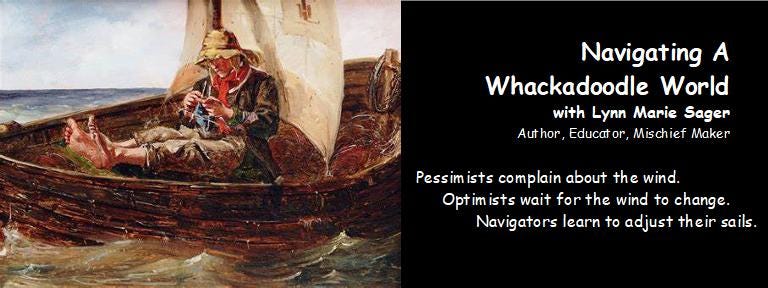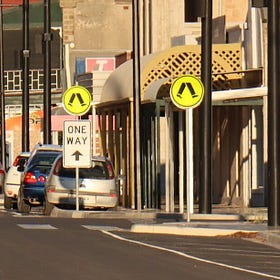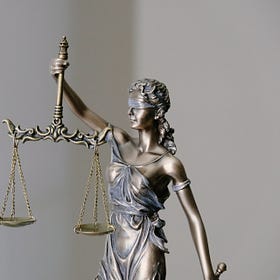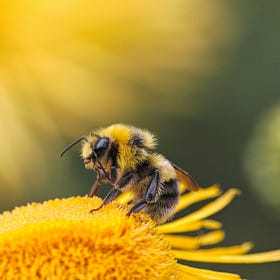Mastering Process and Growth
A curated collection of articles, stories, and exercises to deepen your understanding of Guidepost Seven: The Power of Process and Growth
What’s New?
Next Sunday? You might think you understand accountability—until Responsibility shows up, rolling her eyes at every excuse in the book. With Guidepost Eight: The Power of Responsibility, you’ll learn that blaming others, ignoring your influence, or obsessing over things you can’t control are the fastest ways to drive Responsibility up the wall. Whether it’s saying “He made me mad” instead of “I let him get to me,” or wasting energy on the uncontrollable, this guidepost is all about owning what’s yours—and letting go of what’s not. If you’ve ever felt overwhelmed, reactive, or just plain stuck, Responsibility can help. If you don’t want to miss it—be sure you’re subscribed.
The Journey so Far
Navigating a Whackadoodle World: Episode Seven
What do speed bumps, procrastination, self-esteem, and the justice system have in common? According to our student’s tutor—everything. In this wide-ranging and unexpectedly urgent lesson, the girl discovers that most of life runs on process, and skipping steps usually ends in disaster (or at least a bruised ego). From cream-sicles and raised crosswalks to consequences and systemic inequality, this chapter covers a lot—but that’s kind of the point. Growth isn’t instant, and transformation doesn’t happen by accident. It’s a process. And if you’re willing to take it one step at a time, the results might just surprise you.
Navigating a Whackadoodle World: Episode 21, or the Judicial Process sure is confusing.
In this week’s lesson, the girl’s innocent question — “How do people get indicted?” — sparks an impassioned, slightly off-topic rant from her tutor about systemic injustice, before steering back into a thoughtful, detailed breakdown of the American judicial process. Through their exchange, she learns the difference between indictments, arraignments, bookings, and the distinct roles of grand juries and petit juries — all within the larger context of due process and the principle of presumed innocence. As always, the conversation weaves personal opinion, political relevance, and humor into a meaningful look at how justice is supposed to work — and what happens when it doesn’t.
Navigating a Whackadoodle World: Episode 36, or What haven't you been noticing?
In this follow-up conversation on Guidepost Seven: The Power of Process and Growth, the girl returns frustrated by the way power often shields people from consequences, prompting a deeper dive into how process — like growth — can be either constructive or corrupt. Through metaphors, blunt questions, and a touch of scripture, the tutor pushes her to consider how societal structures reward bad behavior, and how individual choices around boundaries, enforcement, and awareness all play a role. The lesson morphs from abstract indignation to a personal challenge: to identify the “weeds” — the overlooked patterns and incentives — that allow injustice to flourish.
Guidepost Seven: The Power of Process and Growth (Aka Episode 50)
When the student shows up late—again—the tutor uses the moment to introduce Guidepost Seven: The Power of Process and Growth. What starts as a scolding over time-wasting turns into a layered conversation about boundaries, accountability, and the cumulative power of small, repeated actions. From yard work consequences to reflections on privilege, conditioning, and global politics, the piece draws a direct line between personal responsibility and systemic dysfunction—reminding us that accountability must start with the individual, and yes, it goes both ways.
Navigating a Whackadoodle World: Episode 64, The Power of Process and Growth, or Don't Ask People to Feel What They Don't Feel, or Think What They Don't Think
Fresh off her success with a plant-based goal, the girl bursts into the tutor’s study with the smug satisfaction of someone who just gamed the system—with a bottle of V8. What follows is a delightfully meandering session that starts with holiday health hacks, detours into brain science and the pitfalls of forced gratitude, and finally circles back to the long-promised review of the delegation process. As usual, the student keeps the tutor honest, poking holes in earlier teachings and prompting a revised—and more practical—step-by-step system. Along the way, Thanksgiving recipes become metaphors for symbiotic relationships, eggnog makes a guest appearance, and both teacher and student end up learning more than they expected.









